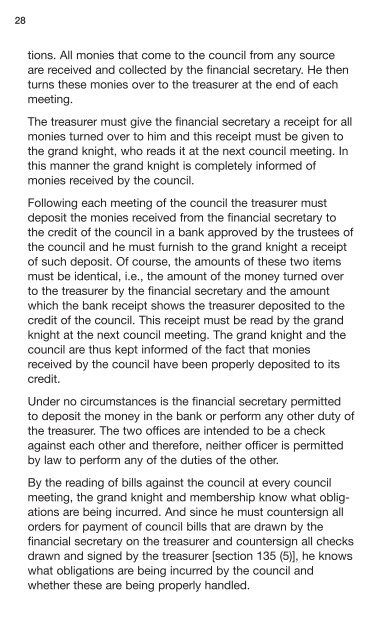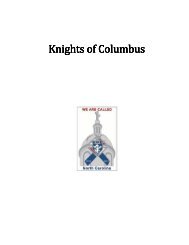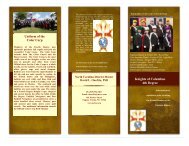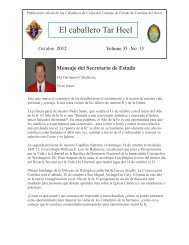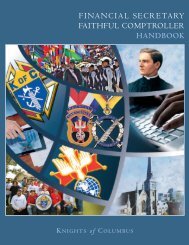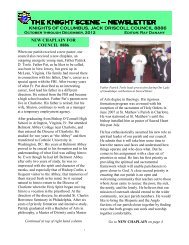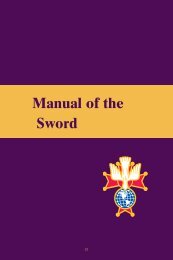Grand Knight Handbook
Grand Knight Handbook
Grand Knight Handbook
Create successful ePaper yourself
Turn your PDF publications into a flip-book with our unique Google optimized e-Paper software.
28<br />
tions. All monies that come to the council from any source<br />
are received and collected by the financial secretary. He then<br />
turns these monies over to the treasurer at the end of each<br />
meeting.<br />
The treasurer must give the financial secretary a receipt for all<br />
monies turned over to him and this receipt must be given to<br />
the grand knight, who reads it at the next council meeting. In<br />
this manner the grand knight is completely informed of<br />
monies received by the council.<br />
Following each meeting of the council the treasurer must<br />
deposit the monies received from the financial secretary to<br />
the credit of the council in a bank approved by the trustees of<br />
the council and he must furnish to the grand knight a receipt<br />
of such deposit. Of course, the amounts of these two items<br />
must be identical, i.e., the amount of the money turned over<br />
to the treasurer by the financial secretary and the amount<br />
which the bank receipt shows the treasurer deposited to the<br />
credit of the council. This receipt must be read by the grand<br />
knight at the next council meeting. The grand knight and the<br />
council are thus kept informed of the fact that monies<br />
received by the council have been properly deposited to its<br />
credit.<br />
Under no circumstances is the financial secretary permitted<br />
to deposit the money in the bank or perform any other duty of<br />
the treasurer. The two offices are intended to be a check<br />
against each other and therefore, neither officer is permitted<br />
by law to perform any of the duties of the other.<br />
By the reading of bills against the council at every council<br />
meeting, the grand knight and membership know what obligations<br />
are being incurred. And since he must countersign all<br />
orders for payment of council bills that are drawn by the<br />
financial secretary on the treasurer and countersign all checks<br />
drawn and signed by the treasurer [section 135 (5)], he knows<br />
what obligations are being incurred by the council and<br />
whether these are being properly handled.


